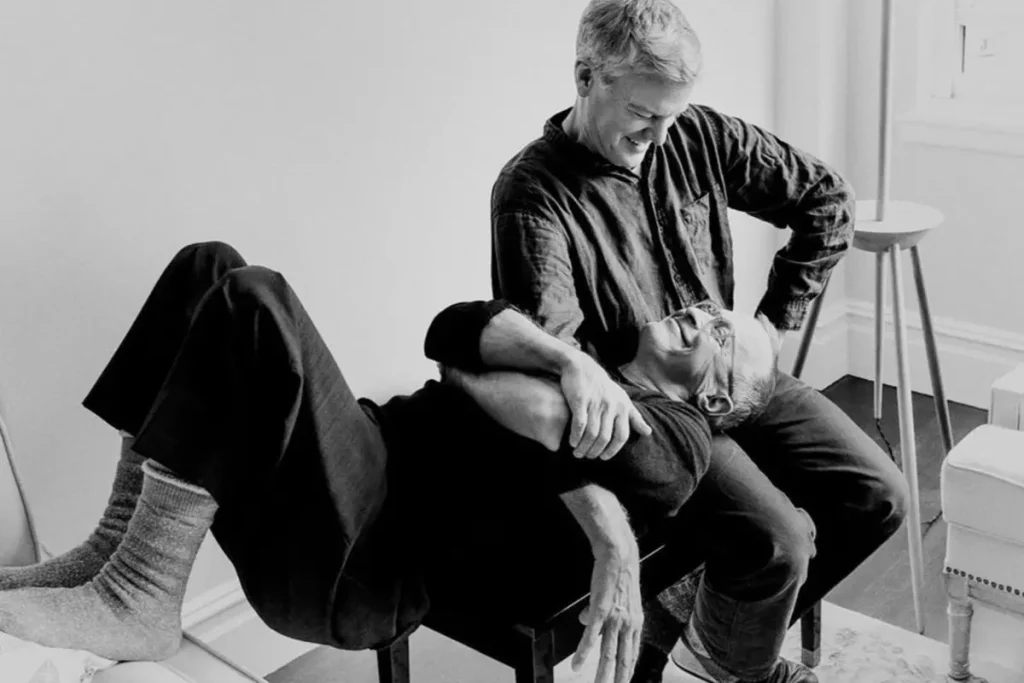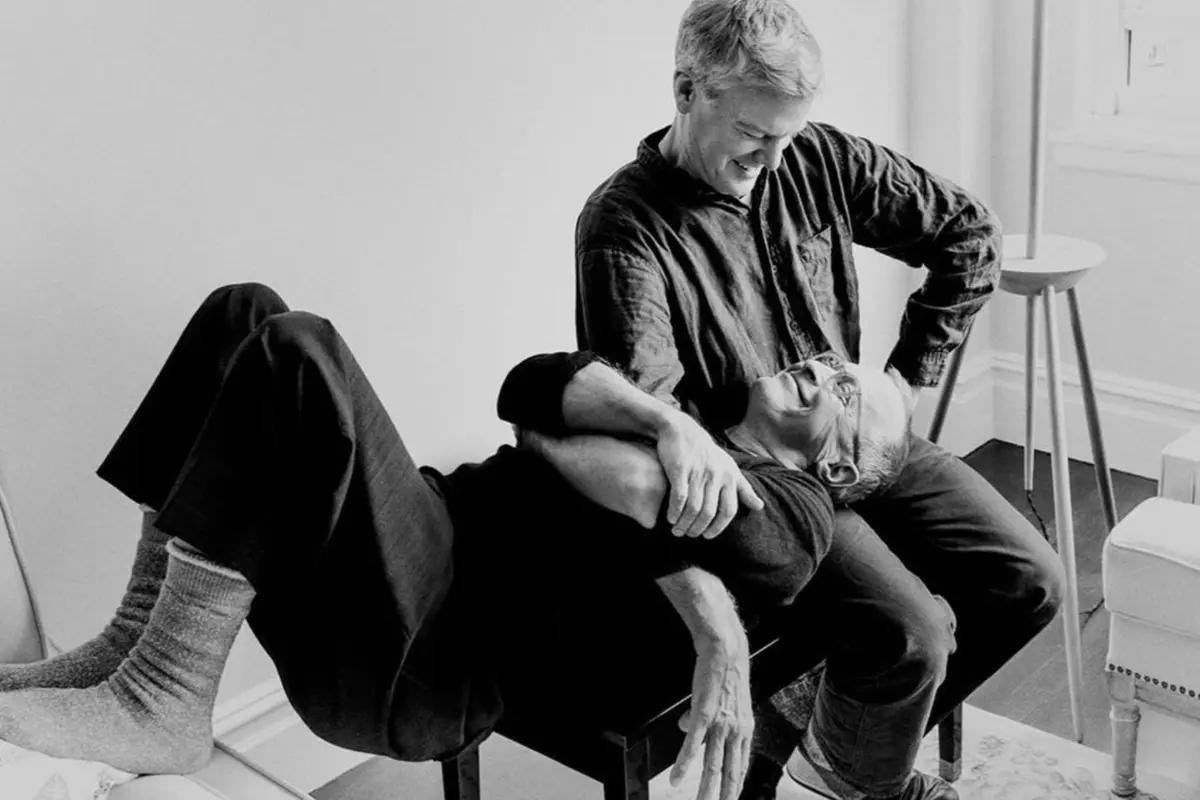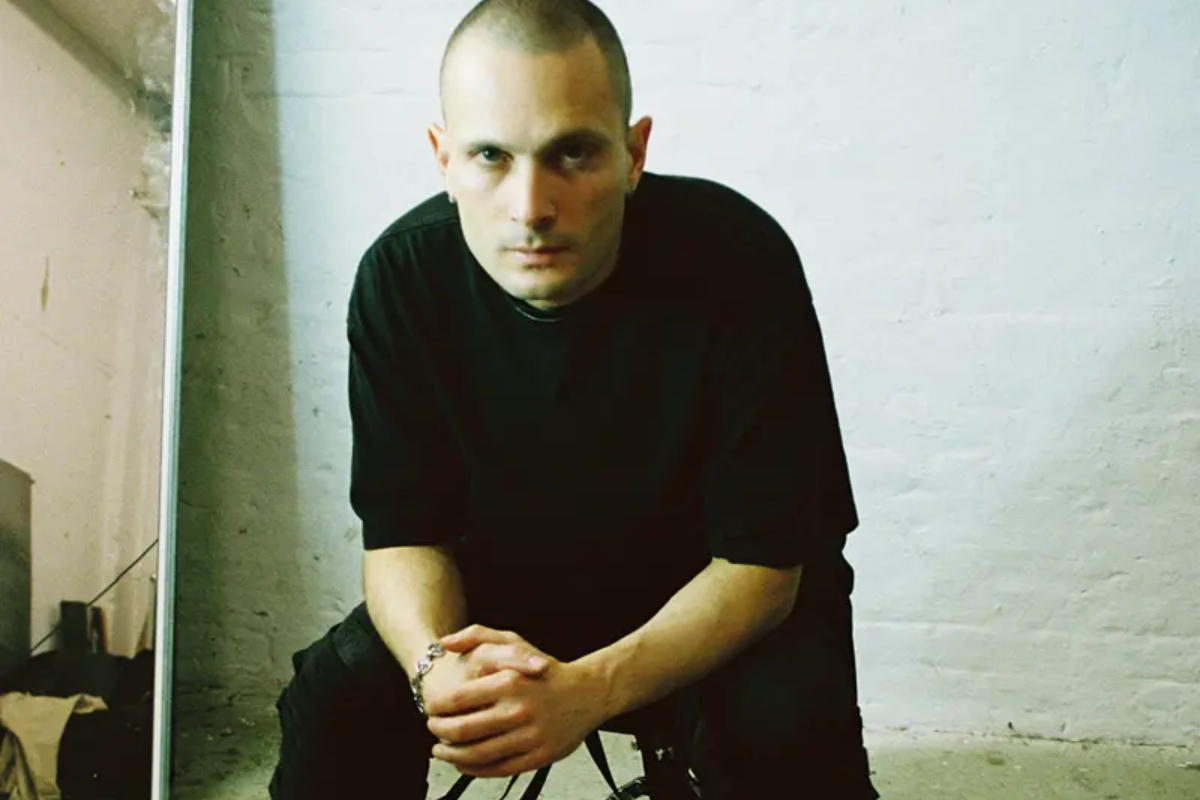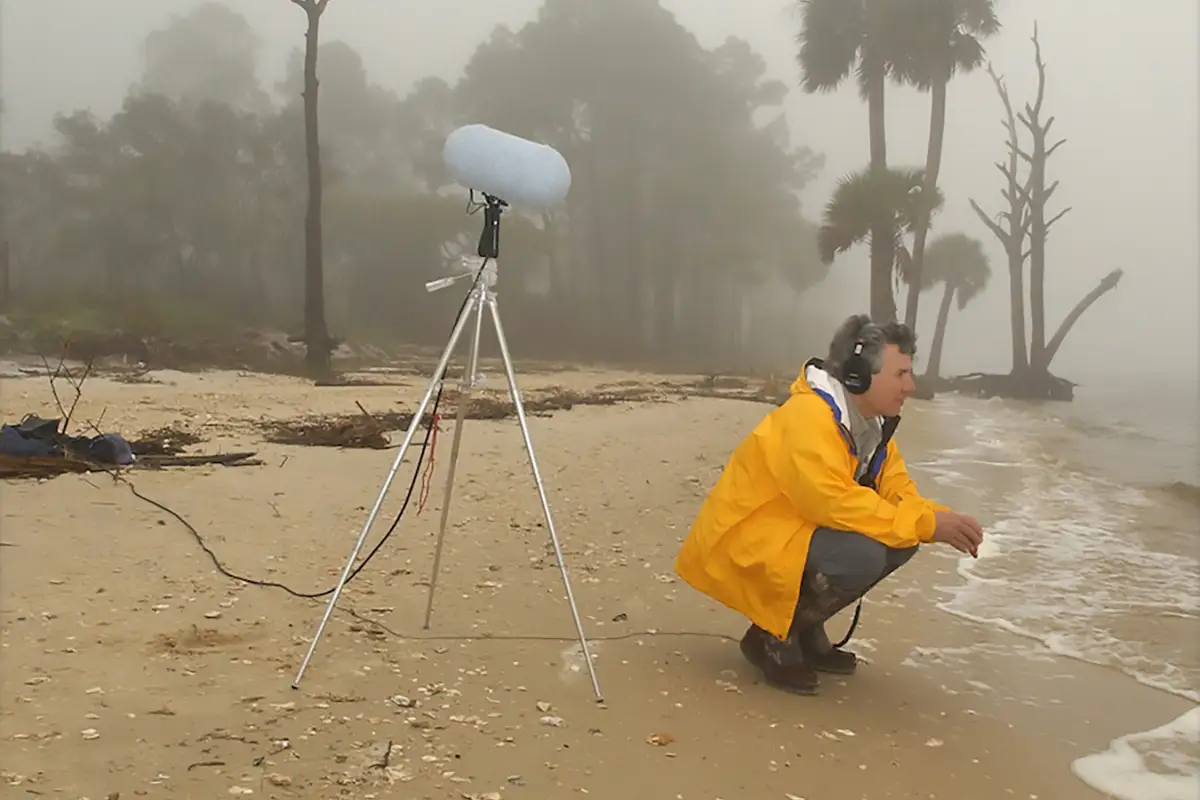«I wanted gay people to have the right to marry just so they could spit on it later» – David Sedaris: homosexuality, relationship with father, sister’s suicide, partner Hugh, writing
David Sedaris, Happy-Go-Lucky: homosexuality, relationship with father, relationship with boyfriend Hugh
In his last days, my father had dementia and forgot that he was a horrible person, behaving decently, for a while. He cut me out of the will, just a few months before he died. He said, I’ll put you back in the will, only if you promise that Hugh won’t touch a penny of what I leave you. Hugh is my partner; we have been together for more than 30 years. He knew I would never promise such a thing, and I knew he would not lose out on me, in the will. He just wanted me to say yes, okay, I’ll do as you say: it would be a victory for him, he would finally be able to bend me
Mattia Insolia
In Happy-Go-Lucky, you delve into your stormy relationship with your father – did his attitude depend on your sexuality?
David Sedaris
My father did not have much interest in diversity. He always saw the love between me and Hugh and could never understand it. My brother recreated my parents’ marriage. Seeing our father call our mother idiot, stupid, jerk, left traces in us. Our mother suffered and I can’t explain why she stayed, maybe for us children
My earliest childhood memory is the circus. I went there with my family, I must have been three or four years old. I still remember the music, the lights, the smells, the colors. It was magical. I also worked in the circus as a boy, I was a handyman. Then I saw a little bit of backstage: a lot of Eastern European men and women, in most cases naked – I would see them changing, and they didn’t have so much trouble showing themselves as mom had made them
Homosexuality and family, David Sedaris’ story: growing up with many siblings has its advantages
Mattia Insolia
In his books and in the plays he performs in the theater, he often talks about his family. There were eight of you; he had five brothers and sisters. Her mother was an expansive, affectionate woman, while her father was not at all.
David Sedaris
My parents should have divorced; in fact, they should not have married at all. I don’t think my father really knew what it was, love, and I don’t think he was ever able to feel such a feeling – over the years, I found myself feeling sorry, for him: living without love must be awful
Our house was always crowded, and when I needed to, I could hide: if I got a bad grade or messed up at school, I knew how to make myself invisible in the eyes of my parents-who were always busy dealing with another one of us children anyway. I had less pressure on me than my peers. Between us we went in periods. First I got along with one and hated the other, then I got along with the other and hated yet another. It is a mechanism that goes on to this day
David Sedaris and relations with his siblings: the quarrel with his sister Lisa
Mattia Insolia
Which of your siblings are you not getting along with these days?
David Sedaris
With my sister Lisa. Because she’s a bitch. She also had a fight with Amy – another sister: Lisa is out of control. It’s a fight I can’t be involved in, by the way, and I’m enjoying it like it’s the best TV show ever. They fought over the inheritance. My father bequeathed ten million dollars, but as I said, he cut me out of the will. When my siblings met to talk about it, Amy said she thought they should split the amount with me anyway, as I was cut out for some crazy reasons, but Lisa got sideways and said no
Mattia Insolia
Your sister Tiffany committed suicide in 2013.
David Sedaris
I often talked about her in books and in the theater. Her suicide was inevitable and we were well or ill prepared. The question about Tiffany was not whether she would commit suicide, but whether it would be a Wednesday or a Thursday. If you have a mental illness and you don’t take your prescribed pills, such an epilogue is likely. When she died I read her diaries and, to be honest, I thought if I had a head like hers I would have committed suicide too. She was extremely paranoid, convinced that everyone was trying to cheat her, to steal money from her – money she didn’t have, she didn’t own much.
She often had such intense relationships that punctually ended violently, among other things, and she couldn’t keep a job. When the family would gather in the house of one of us, he would slip into the bathroom, open the medicine drawer and fill his bag with whatever he could find. She was sometimes difficult to deal with, but she was also a lot of fun. If he had met her he would have said oh, look how funny this woman is and then, after a few minutes, he would have said to himself that he had to run away, get away from the crazy woman in front of him who was raving so madly

David Sedaris’ beginnings: discovered in a stand-up comedy club in Chicago and arrival in New York City
Mattia Insolia
Who is the most fun in your family?
David Sedaris
My sister Amy
Mattia Insolia
I thought she would say it was you – after all, she is a humorist.
David Sedaris
No, I am in third place – in second place is Paul. Over the years the people who have bragged about discovering me are many. At that time I was doing all kinds of jobs and all of them occasionally: painter, carpenter, electrician. After those shows in Chicago things changed first slowly and then, all of a sudden, very quickly. I moved to New York and was given a national radio program and went from an audience of five hundred, six hundred people to ten million. Then everything changed. The radio program was not live and I listened at home. Immediately after it aired the phone started ringing and it went on for many hours. Advertising agencies, film producers, publishers, literary agents-they all wanted me to sign with them. I went from dreaming to living the dream in a matter of nothing. It was around that time that I started writing for the New Yorker, which was what I really wanted, and that I got a call from what would later become my American publisher
David Sedaris and work: when he’s on tour he gives away his hotel rooms
Mattia Insolia
What was the biggest challenge of that period?
David Sedaris
Finding someone I could trust. At first I didn’t have a manager. Dolly Parton’s manager, whom I met in the following days, also called me. He took me to Parton’s mansion, flaunting a luxury not his own and promising me great things, but I felt only embarrassment: to me, it was a strange attitude. I refused his offer. I trusted only the same people I trust today: myself and Hugh, my boyfriend. My greatest desire was to read my stories aloud, in front of an audience. The best part of my job was the theater performances. Now I am about to start a tour of the United States and will visit forty-five cities in three weeks. I have so much new material, things I have never read in public before, and I am very curious to see, finally, how they will be received
David Sedaris and work: when he’s on tour he gives away his hotel rooms
David Sedaris
The worst part of my job is traveling. Canceled flights, delayed trains, cars getting lost-sometimes it’s unbearable. Fortunately, I have an agent who deals with these things: I call and he solves it right away. One time my flight was canceled, I told him, he called me back in a few minutes and told me to get in a car, that he would pick me up and take me to a private airport where I would get a jet, it was amazing. No lines or security checks or queues. The car took me directly to the plane, I got in and we left when we told him to, we passengers.
A dream, but I had to pay for it, ten thousand dollars for a forty-five minute flight. It happened to me a couple more times. Two years ago I was in a city besieged by a hurricane and airliners weren’t leaving so I took a private jet together with the producer of my shows. The plane could carry up to eight people, and yet there were only two of us, so I proposed to him that we could accommodate six people who were stranded at the airport, people chosen at random from our previous flight and who needed to leave. But he told me no, there was a risk that they would talk too much.
It’s something I still feel guilty about to this day: it would have been nice to take someone with us, not only would we have given them a chance to leave, but we would also have given them an experience they would certainly never have had. When I am on tour, I know that the hotel room is also paid for for the night but that I will only occupy it during the morning, because the show is in the afternoon and I have to leave in the evening for another stage, I often take the keys with me and give them to the first nice couple I meet, telling them that the room is paid for, that I won’t be able to use it and that it would be a shame if it went to waste
I dream of living in a southern country where people are expansive, not like in the U.K.
David Sedaris
Living in a southern country. People there are warmer, expansive. In the UK, they often don’t even say hello. Once I found a handbag in the street – I often stop, walking in the city, and pick up the garbage I come across and throw it in the first dumpster: trying to keep the city I like. I found this purse and inside was the owner’s papers and so, after tracking her down, I went all the way to her house. I rang the doorbell and a woman came out and I asked her if she was Julie Thompson, but the woman said no.
I told her that I had found her purse, so she told me that yes, in fact Thompson was her, only she always told people who came knocking on her door that she was the maid, because she didn’t feel like chatting with door-to-door salesmen. I handed her the bag, however, she told me that she did not want it, that she was no longer interested in it. Imagine, I didn’t want it either, it was an ugly, worn-out bag, but I had to take it with me, because she didn’t want to keep it. Here, think about it? A stranger picks up her bag, takes the trouble to bring it home to her, and she doesn’t even thank him.
David Sedaris: I wanted gay people to have the right to get married just so they could spit on them later
David Sedaris
I hate married couples. This is my mariiito, Gaaary: you know those people who talk like that? Oh, wait, I ask my mariiito, Fraaank. My God, I hate them. I wanted gay people to have the right to get married just so they could spit on them later. We have been together for thirty-two years. I think I’m going to leave him soon anyway – he laughs.
There are a lot of people who break up because one of them says he needs to find himself, and I would like to tell him that no, he’s not that special and he’s not going to find anything good – he’s just going to be alone. Here, I think one has to leave the partner for real reasons: he cut off my leg, he raped my sister in front of me, things like that. Should he do it while I’m on vacation, rape her, I mean, I would think: okay, fine. But if he does it in front of me, though, that’s not okay. Here’s the good thing about dating a gay man: he won’t rape your sister
Mattia Insolia
Imagine you are ninety years old and it is Sunday morning: where are you, what are you doing, who are you with?
David Sedaris
I will be at my desk, and I will be writing, as always. Maybe it will just be a diary, maybe I will just be an old man who doesn’t understand anything anymore, but I will certainly be writing, if only for me.
David Sedaris
David Sedaris, author of twelve books, the most recent of which is Happy-Go-Lucky. He is a contributor to The New Yorker and BBC Radio 4. In 2019 he was inducted by the American Academy of Arts and Letters. He is a recipient of the Thurber Prize for American Humor, the Jonathan Swift International Literature Prize for Satire and Humor, and the Terry Southern Prize for Humor. He is considered the foremost humor writer on the international literary scene.



















